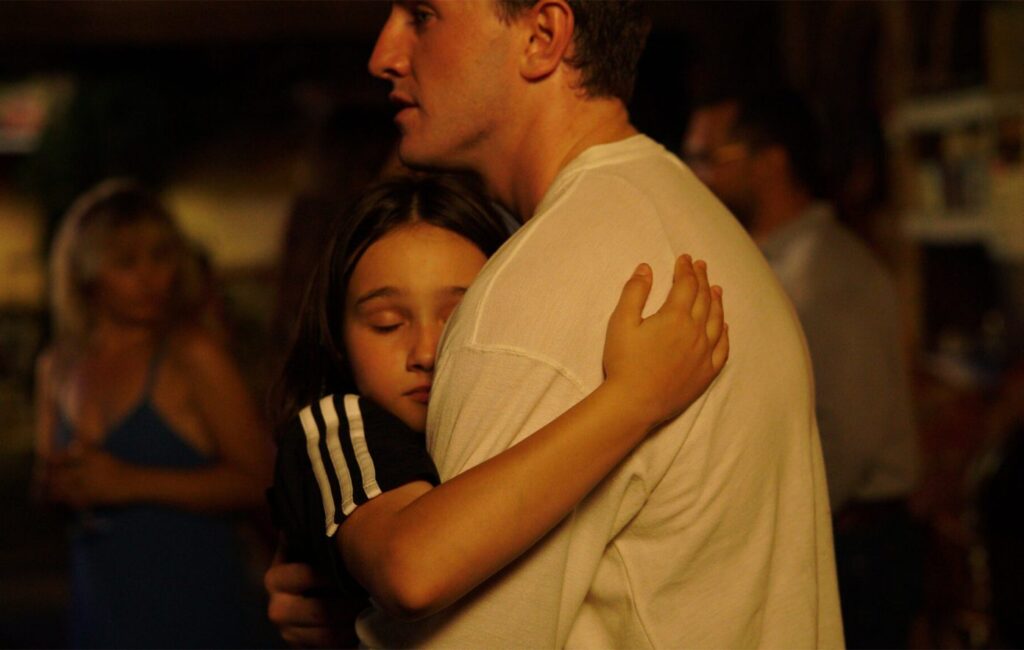(January 2023) - By Jada Sirkin
*
Aftersun (Charlotte Wells, 2022) strikes me as a treasure. The film is a feast of subtleties: the minutiae of the father-daughter relationship, the camera's attention-grabbing modes, the color, the decision to give us little information but to suggest a hidden drama. Paul Mescal and Frankie Corio make a lovely duo —performances full of nuance and ambiguity. What I wonder is why did the jumps to the present from which they remember bother me? Why did the appearance of her as a grown-up bother me? Why did I find the ending where he leaves to be excessive? I read those moments as an attempt to give value to something that, for me, already had a great deal of value. It's as if the film wasn't satisfied with just giving us its already delicious substance, and so needed to orchestrate a narrative ceremony - to put the package together. Fortunately, here the packaging is not so important (though the closing is somewhat solemn) and so does not manage to undermine the substance; the scenes of her as an adult say little, and the film, at least for me, is still all the other stuff. There may be no point in imagining what a film would be like without a part of it, but the truth is that it is something we do unconsciously and inevitably. We never remember every shot, we always trim; when we go back to a film we saw a long time ago, we realize that we have invented a good chunk of it. Rancière said that, to really see something, the spectator has to "compose his own poem". Otherwise, there is nothing.

In an interview, the director says that "the note of loss" that appears at the end is not enough to overshadow the love in the film. I agree, and I wonder what the film would be like without that note, without that present in which something is already lost. It's a commonplace: we acknowledge the value of things when we lose them. Is that remembering? Framing what is gone. Framing so that it goes away. We acknowledge the value of an experience when it is over. Could that be the function of the telling of that present without a father? At some level, it seems that these scenes complete the film, give closure, a sense of finished work. Even if in a poetic and metaphorical way, the ending is a death. Death, like marriage at the end of romantic comedies, is reassuring. It saddens, but it calms. Because it closes. It makes the narrative circle close and the work of art acquire a kind of completeness. Adrian Martin asks "Why does a great film have to be masterful (let alone a masterpiece!), completely coherent, totally masterful of itself and its processes?" Interesting question —why do we place so much value on the notion of a closed work? Why do we think that a good film is one that is well made? If Aftersun didn't have those scenes, would it look like an unfinished work? Would it be a home movie without closure? Would there be a feeling of a loose thread? The film is traversed by a kind of trace, something wants to leave: from that first stopped image, the father's body about to leave the shot, a death drive that explodes when he goes into the sea —the father's withdrawal that gives the daughter the space to drift and open her own paths. The sea scene functions as a death, for us spectators, who can read it that way, and for the character, who faces his abyss. With the power of this moment (including the return of the daughter to the hotel, him naked on the bed), why does the film decide to add this other death, symbolic or concrete, which seems to want to give closure and final meaning to the aesthetic experience? Obviously, the film is what it is, with all the scenes that its director (or whoever, destiny!) chose to include; what I propose is an exercise, a game: we imagine what the film would be like without the jumps to the present and without that ending. What would happen? What would the experience be like?
*
If the article was of interest to you, please share it and consider DONATING HERE so that we can continue our research. Thank you very much!



